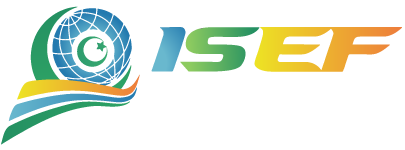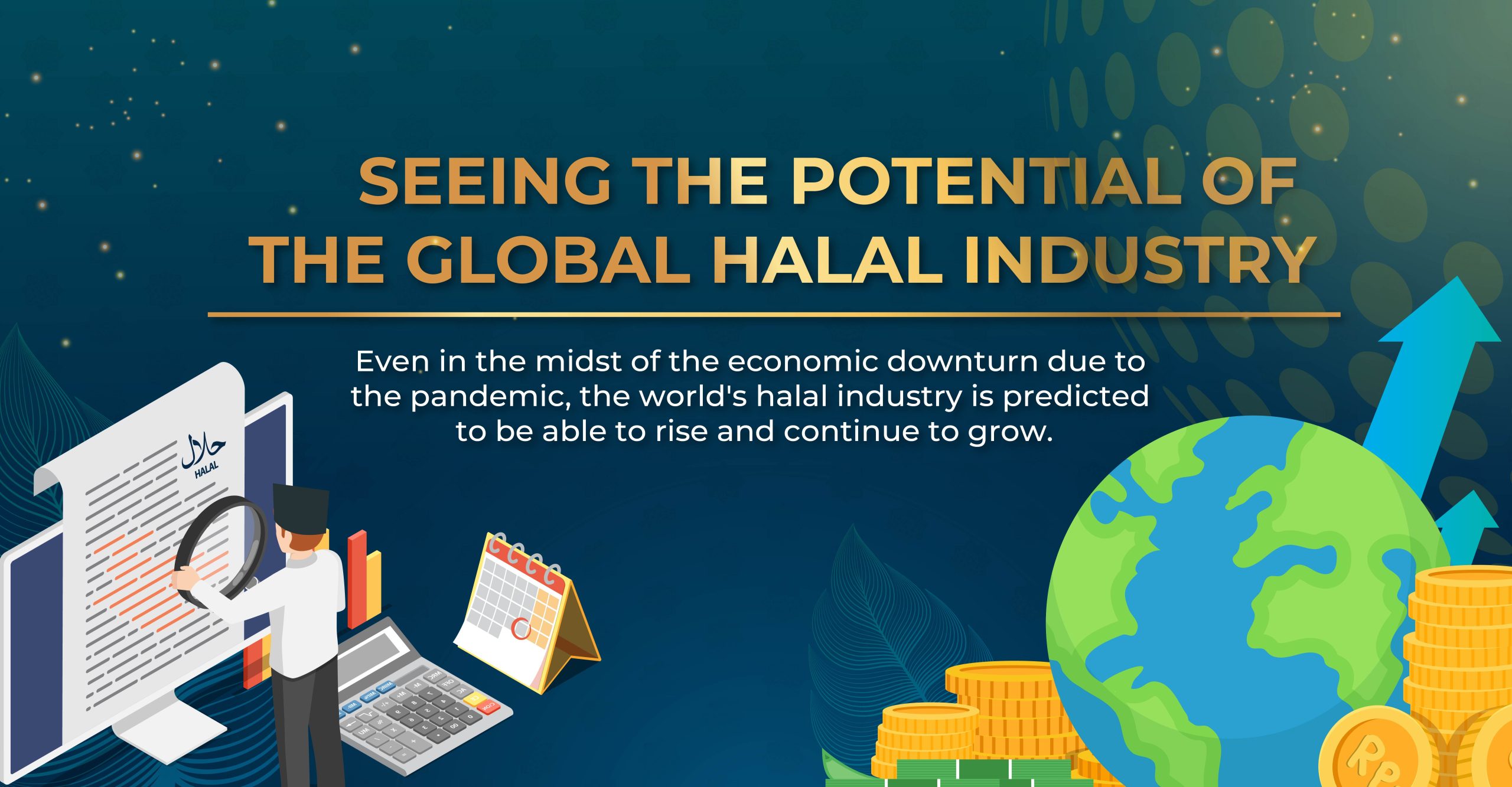Seeing the Potential of the Global Halal Industry
Even in the midst of the economic downturn due to the pandemic, the world’s halal industry is predicted to be able to rise and continue to grow.
Currently, the world’s muslim population reaches 1.8 billion people and still counting. The rapid growth of the muslim population will certainly have positive impacts on the development of the Islamic economy. In 2019, the State of the Global Islamic Report stated that the muslim population spent around USD 2.2 trillion on the consumption of halal products, such as food and beverages, medicines, and other lifestyle products that support halal lifestyle. This figure is predicted to increase to USD 2.4 trillion by 2024, where the potential sectors that will play a major role are the halal food and beverage industry, cosmetics, medicines, Islamic financial services, modest fashion, halal tourism, and Islamic media.
Quoted from the State of Global Islamic Report, throughout 2020 there was a significant decline in all sectors of the halal industry, especially halal tourism. However, it is predicted that in 2021 all halal industrial sectors will increase. Meanwhile, in 2019 the number of transactions issued for halal food reached USD 1.17 trillion, a 5.1% increase compared to 2017. This figure is predicted to increase by 6.3% per year to reach USD 1.38 trillion in 2024. The potential of the halal food industry is also evident from the interest of international business players such as Haribo, Nestle, and Ferrero Rocher in trying to get halal certification to attract muslim consumers. Indonesia itself is the top spender in the world’s halal food industry with transactions reaching USD 173 million.
The growth of the halal industry is caused by several factors, namely:
Increasing the number of muslim population. By 2030, it is predicted that the Muslim population will increase to 2.2 billion people. This increase is said to be double the number of the world’s non-muslim population.
Gross Domestic Product of Organization of Islamic Cooperation (OIC) countries is predicted to increase, as a sign of increasing muslim population’s welfare.
Increasing religious awareness in the muslim population resulting in increasing demand for halal products.
The large penetration of smartphones and technology in OIC countries has led to a more digitally connected muslim population. The use of technology and gadgets is one way to help the practice of the halal industry.
Increasing the ethical-consumerism trend that has principles in accordance with the halal lifestyle. The halal lifestyle is in fact very relevant for everyone. This makes many non-muslim consumers who ultimately choose to practice a halal lifestyle and use products from the halal industry that are guaranteed to be safe, clean, and good.
Halal lifestyle is one of the big factors why the halal industry is growing. Awareness on halal products and the production, distribution, and consumption processes supporting them, makes the halal lifestyle more attractive to many people. Not to mention the current COVID-19 pandemic situation. Humans are required to pay more attention to what they consume. Therefore, halal products that are guaranteed to be good, clean, and safe will be the main choice for consumers.
Grasping the Opportunity
In the Global Islamic Economy Indicator (GIEI), which displays the ranking of the player countries in the global halal industry, Indonesia is ranked fourth in 2020. This is a big improvement, after ranking 10 in 2018 and in 2019 climbing to 5. One of the factors driving this ranking is the launch of the Indonesian Sharia Economic Masterplan (Masterplan Ekonomi Syariah Indonesia-MEKSI) 2019-2024 which serves as a guide for the development of the country’s sharia industry.
The GIEI shows that Indonesia is experiencing good growth in all key sectors of the halal industry. In tourism and halal-based media, Indonesia is now in the top 10, whereas previously it was ranked 52. Meanwhile, in the pharmaceutical and cosmetic industry, Indonesia rose 19 places to sixth place. Awareness about tourism, medicine, cosmetics, and Islamic-based media is the reason for Indonesia’s ranking. In the halal food industry, Indonesia is now ranked fourth after successfully exporting to many OIC countries. Finally, in the modest fashion sector, Indonesia is in third place, behind the United Arab Emirates and Turkey.
The halal food industry, modest fashion, medicines and cosmetics, tourism, and Islamic-based media will be the mainstay sectors to increase the growth of Indonesia’s halal industry. As a country with the largest muslim population in the world, Indonesia has a huge opportunity and a huge market potential in the halal industry. The government has issued many policies that support the halal industry, starting from faster and one-stop halal certification to other forms of support that are expected to accelerate growth. On the other hand, it is also necessary for business owners to be more active in educating and socializing their consumers, in order to vastly increase the halal industry awareness.


